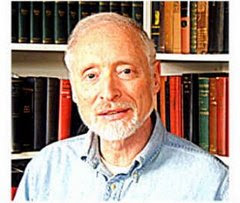
The Five Core
Values of
Time Banking
Time Banking turns strangers into friends.
Hey, can you do me a favor?
Have you ever wished you had someone around to give you a ride somewhere, help you run some errands, pick you up after you’ve dropped your car off for repairs, or just give you a hand when you need it. Someone you really trust?
Many of us have friends, neighbors and family members who help us out, but they can’t always be there in a pinch. In a Time Banking community, someone is always there when you need them.
It is like having an extended family to help out—with rides to the doctor, trips to the supermarket, help with the yard, chores around the house or elder day care or child day care.
With Time Banking, sharing gifts means building trust!
Time Banking honors the unique gifts, talents and resources that each of us has to share, regardless of age, employment or ethnic background — such as tutoring, yard work, simple repairs, running errands, and storytelling. It’s labor with love.
Time Banks exist to promote exchanges that honor five core values.
Assets
We are all assets.
Every human being has something to contribute.
Redefining Work
Some work is beyond price.
Work has to be redefined to value whatever it takes to raise healthy children, build strong families, revitalize neighborhoods, make democracy work, advance social justice, make the planet sustainable. That kind of work needs to be honored, recorded and rewarded.
Reciprocity
Helping works better as a two-way street.
The question: “How can I help you?” needs to change so we ask: “How can we help each other build the world we both will live in?”
Social Networks
We need each other.
Networks are stronger than individuals. People helping each other reweave communities of support, strength & trust. Community is built upon sinking roots, building trust, creating networks. Special relationships are built on commitment.
Respect
Every human being matters.
Respect underlies freedom of speech, freedom of religion, and everything we value. Respect supplies the heart and soul of democracy. When respect is denied to anyone, we all are injured. We must respect where people are in the moment, not where we hope they will be at some future point.
 Edgar Cahn is the founder of TimeBanks USA, a nonprofit that promotes Time Dollars, local currency for community building and a Distinguished Professor at the University of the District of Columbia School of Law. He is the author of "No More Throw-Away People" and "Priceless Money."
Edgar Cahn is the founder of TimeBanks USA, a nonprofit that promotes Time Dollars, local currency for community building and a Distinguished Professor at the University of the District of Columbia School of Law. He is the author of "No More Throw-Away People" and "Priceless Money."
What are Time Banks?
Time Banks Weave Community One Hour at a Time.
For every hour you spend doing something for someone in your community, you earn one Time Dollar. Then you have a Time Dollar to spend on having someone do something for you. It's that simple. Yet it also has profound effects. Time Banks change neighborhoods and whole communities. Time Banking is a social change movement in 22 countries and six continents.
Click on image to enlarge. http://www.timebanks.org/how-it-works.htm
http://www.timebanks.org/how-it-works.htm
http://timebanks.blogspot.com/2007/12/welcome-to-priceless-money.htmlVisual Illustration of How Time Banking Works!
http://burlingtontimebanks.files.wordpress.com/2008/01/03_the-time-dollar-way.jpg







